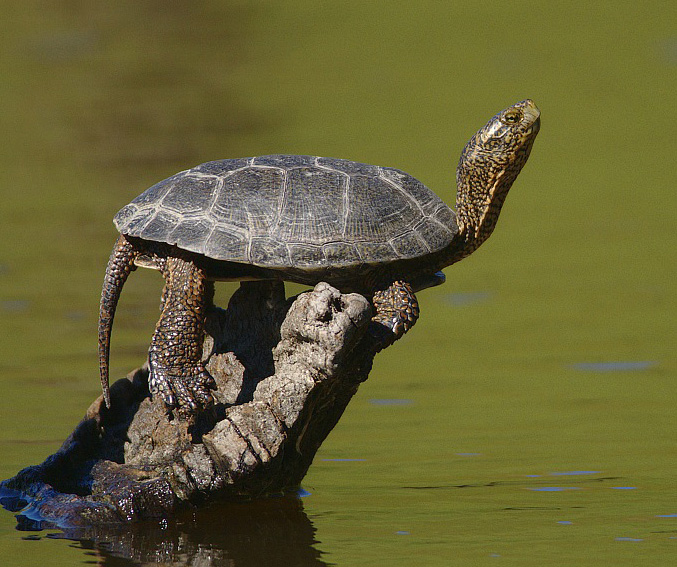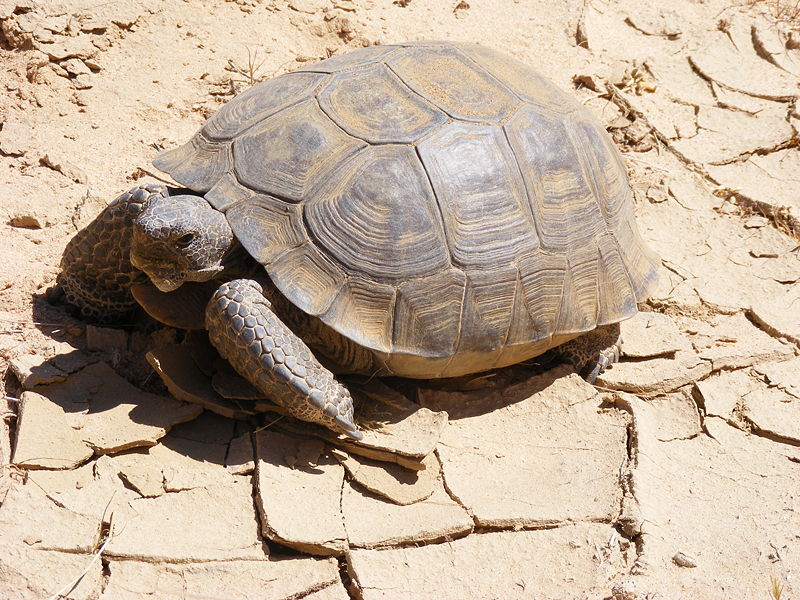They may not be warm and fuzzy, but turtles and tortoises represent one of nature’s finest adaptions that has lasted these carapace-covered critters for millions of years. Sure birds evolved from dinosaurs, but these creatures are the real deal!
Celebrating shelled reptiles from here to Timbuktu is the 14th Annual World Turtle Day (May 23, 2014) is a platform to speak out on the many injustices, mishandling and misinformation done toward turtles and tortoises around the world. It’s also a way to spotlight the diversity of these equally aquatic, oceanic and desert species.
“We get a lot of great photos from all around the world of people and organizations including Pakistan, Borneo, India, Australia, the UK and many other countries,” says Susan Tellem, co-founder and executive director of American Tortoise Rescue based in Malibu that hosts World Turtle Day. Indeed, the Facebook page for World Turtle Day is a hodgepodge of international photos along with tortoise themed contests, cartoons, terrapin tattoos and turtle-shaped baked goods.
Aside from the good natured fun of World Turtle Day, Tellem says the event was created to raise awareness of the plight of these (mostly) vegetarian beasties – including SoCal’s very own California (Pacific) pond turtle and the California desert tortoise. These days it’s incredibly hard to find the native pond turtle because the non-native red eared slider has decimated much of the ponder’s habitats. That’s the type of turtle you’re apt to see at ponds and creeks in the Southland. (See how to identify California turtles here with this handy guide.)

Tellem says her organization tried to put a ban on red eared sliders that came into SoCal via Asian live food markets, but it’s an uphill climb considering the clout of those groups. “We really don’t need any more red eared sliders here,” she says. “Enough is enough.”
Equally elusive is the California desert tortoise that spends most of its time either hibernating or hanging out in underground burrows. This endangered species has been in the news a lot these days with solar arrays being constructed in our deserts; the policy typically is to remove tortoises from construction sites and encourage them to burrow in new areas, but the stubbornness of the desert tortie cannot be underestimated. “They will go where they want to go…and it’s back to their original burrow,” says Telman describing stressed out tortoises desperately searching for a way back home – and that never ends well.

Also plaguing these determined diggers is the introduction of domestically–raised tortoises that often have respiratory illnesses. When these desert tortoises are brought (i.e. dumped) back into the wild, they quickly spread diseases which can wipe out desert tortoise communities.
Tellem’s organization offers a permanent home to abandoned and lost tortoises. They use to do adoptions (the organization has been around for 20 years and has placed more than 3,000 tortoises and turtles), but now point to organizations for folks interested in bringing a mini-dinosaur into their home. “We field requests and give out lots of referrals. There are plenty of tortoises to adopt here in SoCal,” she says adding that there is no reason to go to a pet store or breeder.
So often, Tellem explains, large chain pet stores views turtles as an “impulse buy,” (those itty bitty sulcata torties are just so DARN CUTE) and folks really don’t know what they are getting into when they bring one home. Of course, that turtle probably isn’t long for this world.

Smuggling, the exotic food industry, habitat destruction, pet trade – all these things could contribute to the end of turtles and tortoises as we know it. Still Tellem is optimistic and explains that there are ways humans and carapace can coexist. She rattles off things to be mindful about: don’t buy from a pet shop, never remove from the wild (unless sick or injured), write lawmakers to restrict habitat destruction, report illegal sales (especially as prizes at carnivals – that’s illegal) and know that’s also illegal to sell a turtle less than four inches long.
Tellem also encourages folks to consider adopting a tortoise. In the high cost world of pet dogs and cats, a tortoise is a low-maintenance beast that won’t break your bank. They have simple needs (veggies, fenced yard, burrow) and they sleep for a good chunk of the year. “There is something peaceful about watching them,” she says. “And yes, they have distinct personalities that are charming.”
